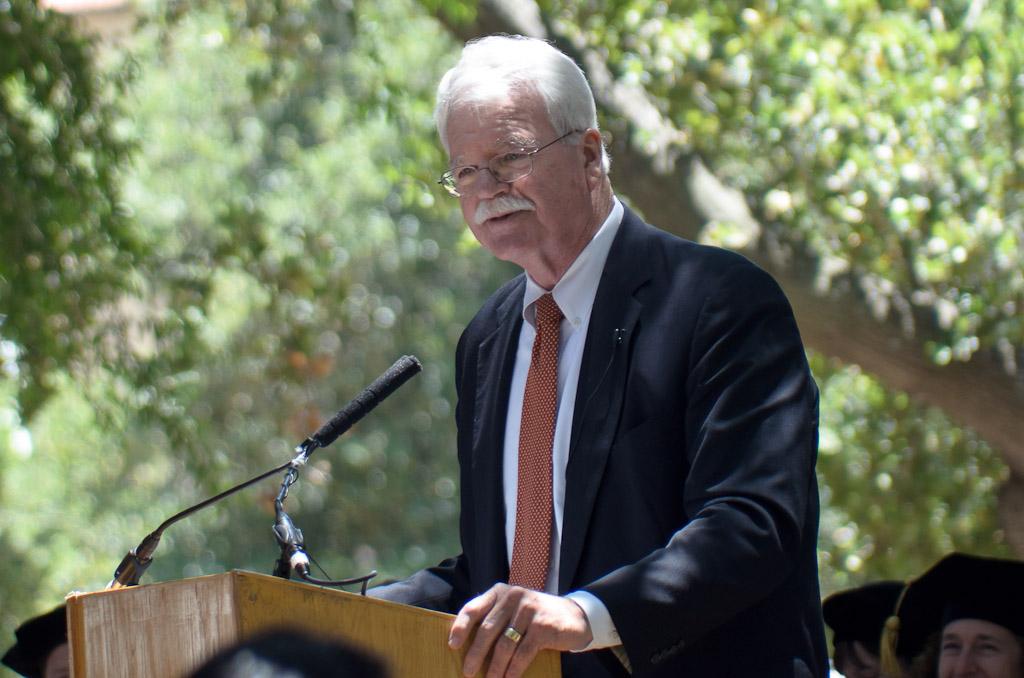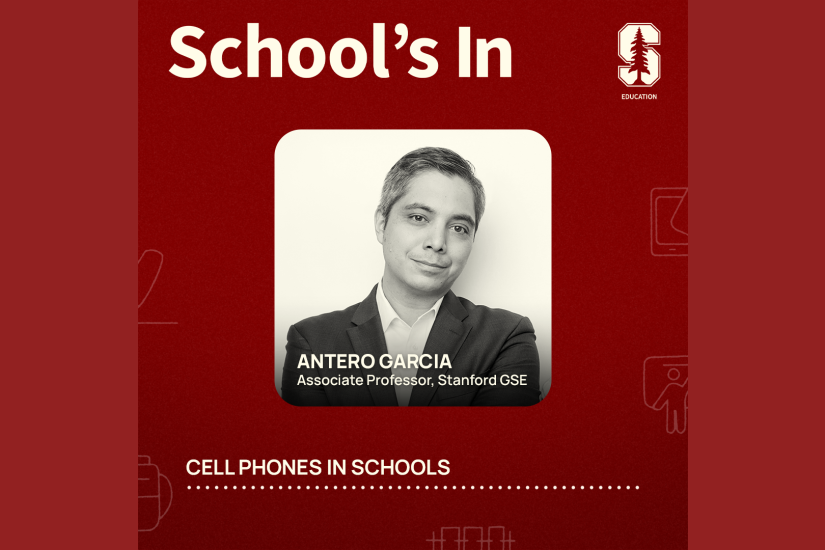
Congressman Miller to SUSE grads: Be a “disrupter”
» View Photo Highlights below
By Amy Yuen
Editor's note: Read a transcript of Congressman Miller's commencement address.
Congressman George Miller, Senior Democrat of the House Education and Workforce Committee, delivered the Commencement Address to this year's graduating class of the Stanford School of Education on June 12.
In the first commencement address he has accepted in his 37 years of public service, Miller urged graduates to be a “disrupter”—someone who will challenge the status quo, seize opportunities for change, and “fight for your students.”
“Your class is critical to leading and expanding the most dynamic reform environment any of us has experienced,” said Miller, representative of the 7th District of California in the East Bay and chair of the Education and Labor Committee from 2007 to 2010. “Your graduation comes at the confluence of a recognized national need for better outcomes from our schools and the advances in our understanding of what leads to those outcomes.” Miller cited as evidence efforts to revise teacher evaluations in 17 states and districts, the adoption by nearly all states of the Common Core Standards, and the growing legislative momentum behind parent-trigger proposals in over a dozen states.
Miller also challenged graduates—many embarking on careers as teachers and district administrators—to demand a modern workplace. “Young educators across the country aren’t waiting for traditional schools to change,” said Miller. “They are seeking out schools desiring change or joining efforts to create new schools with high-quality programs meeting the needs of our kids and our communities. You have the ability to change the architecture of our schools. Congress has the obligation to create policy that allows this change to accelerate.”
A reauthorized No Child Left Behind Act (NCLB) will continue to hold schools accountable for student outcomes, but through a “richer index of measures that includes growth, graduation rates, and a high quality, modern assessment system,” he said. A rewritten NCLB would allow states, districts, and schools the flexibility to improve schools based on their needs, according to Miller. “We must support and demand real data-based decision making to allow the federal government to get out of the way and support a performance-based system,” said Miller. “Performance must be transparent to communities and to parents so that they can participate in their schools and support their success.”
He continued, “We must give districts a better way to access funding, provide more flexibility in what can be funded at the local level, encourage community partnerships and have strong consistent outcome measures of success. And, most importantly, we must support a professional environment for teachers and school leaders that holds them accountable and provides the information and the resources to succeed, and lets them get back to doing what they do best—educating students.”
Prior to Miller’s address, Dean Deborah Stipek greeted the graduating students and welcomed them as alumni of the School of Education. “As Stanford alumni, you have just moved from a relatively small group of mentors, friends and colleagues into a large extended family of mentors, friends and colleagues—people with extraordinary and diverse array of knowledge, skills, talents, and positions,” Stipek said. “In your new family, you have teachers, principals, superintendents, curriculum and software developers, researchers, college professors and administrators, teacher trainers, policy makers, school board members, writers – even presidents of countries. They speak many languages and they represent many cultures. I am delighted to be the first to welcome you to your new extended SUSE family.”
On behalf of School of Education students, Student Guild representatives announced the winners of this year's faculty awards. Catherine Chase and Marily Opprezzo presented Professor Dan Schwartz with the Advising Excellence Award, and Judy Hicks and Catalina Martinez gave the Teaching Excellence Award to Associate Professor (Teaching) Ira Lit. A total of 26 students received doctorates and 178 received master's degrees at the afternoon ceremony.
Photo Highlights by Chris Wesselman
Using a mobile device that doesn't support Flash? Follow this link to view the photo slideshow.



